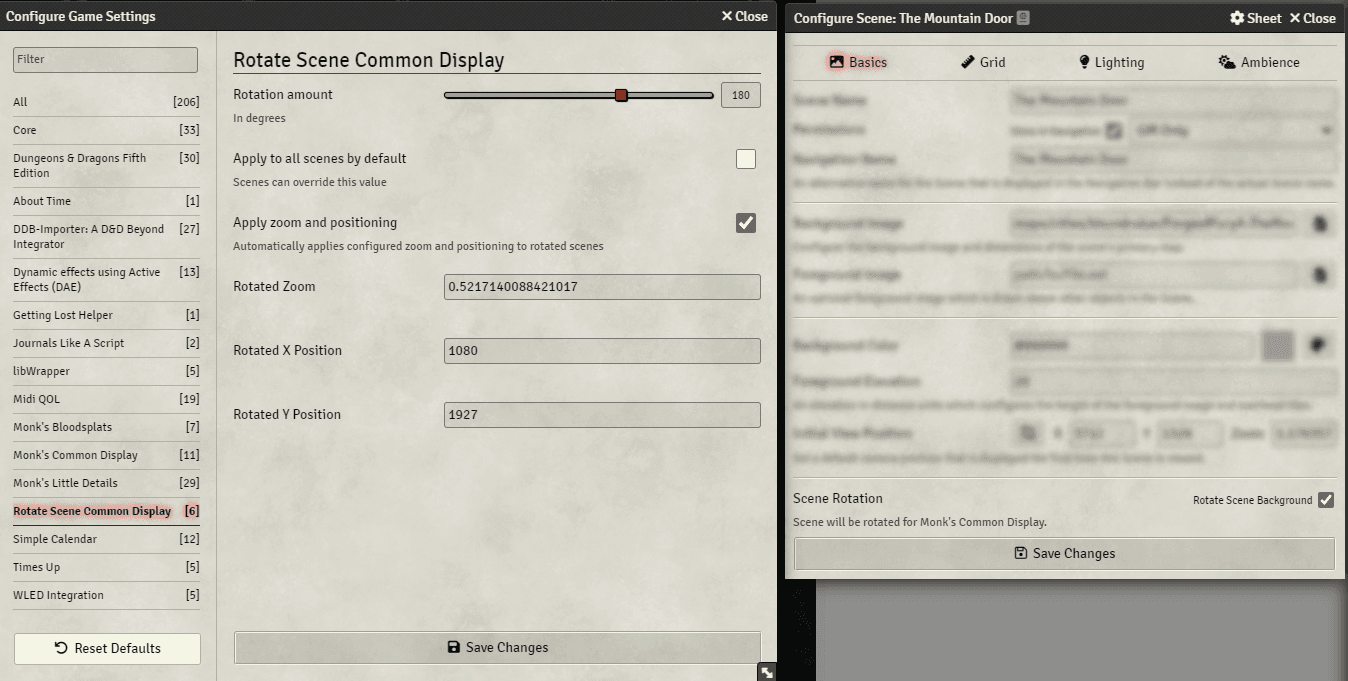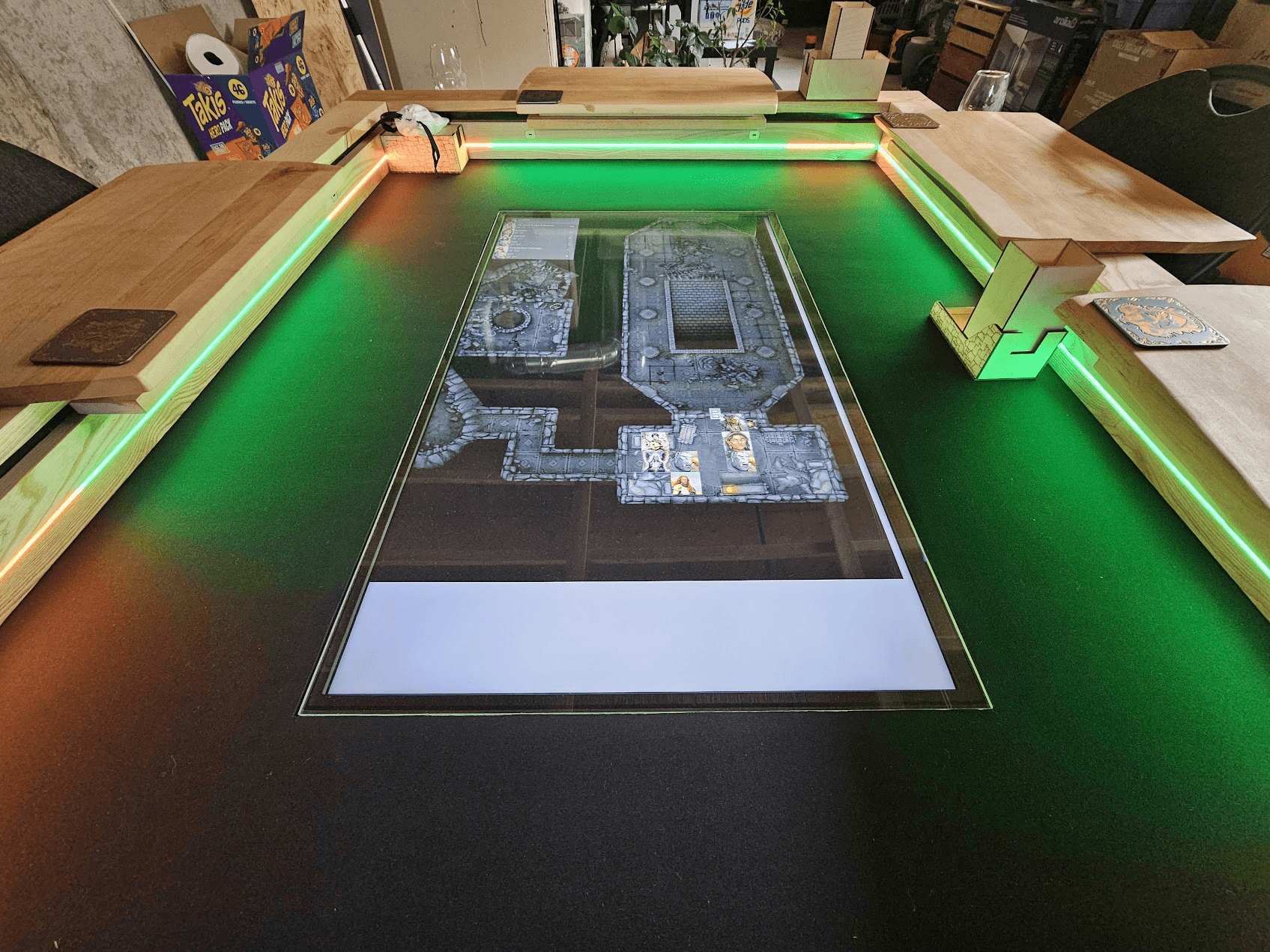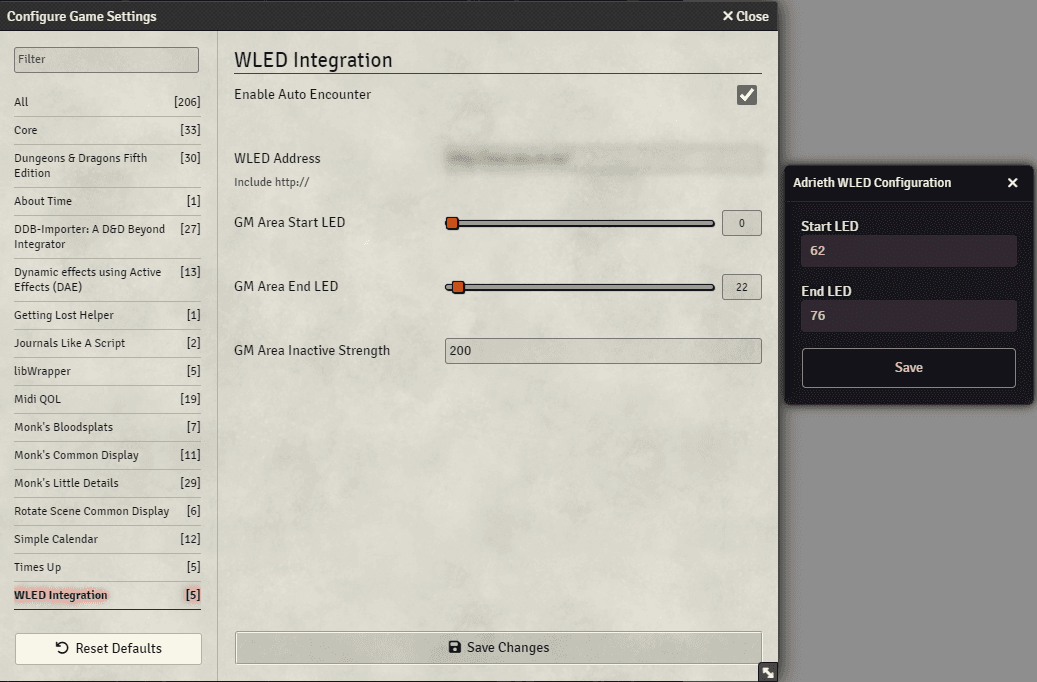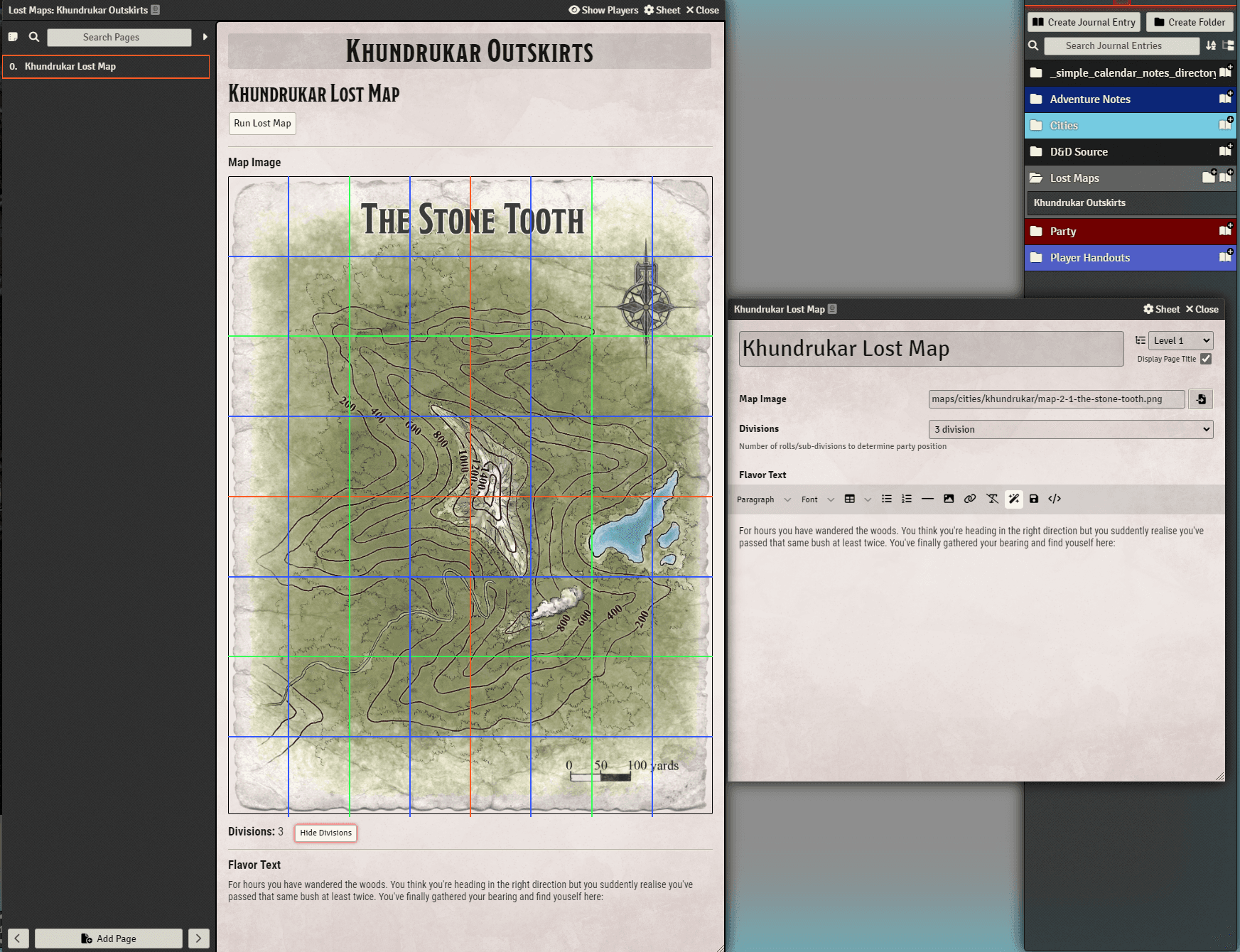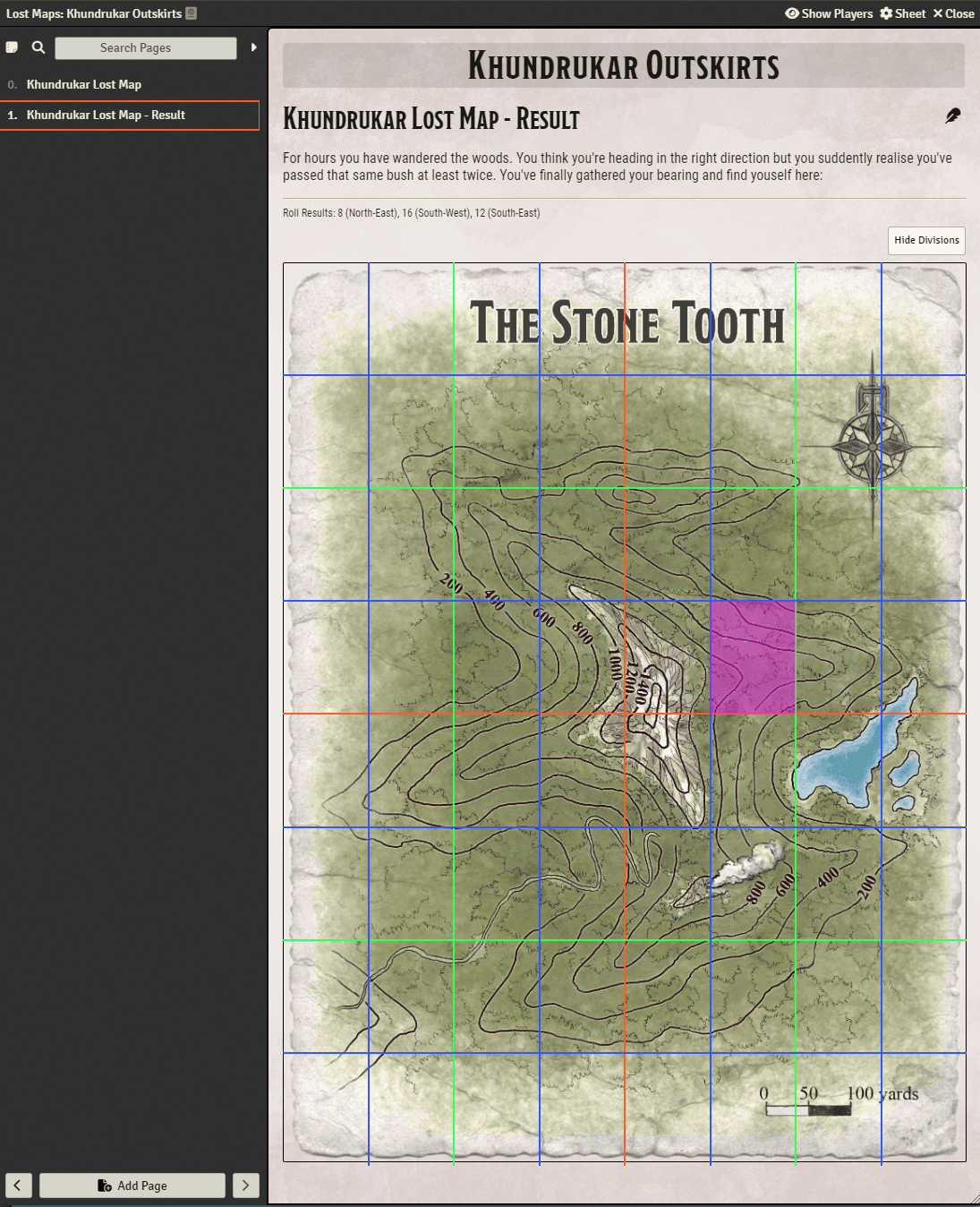Foundry VTT modules
I've recently started DMing for a D&D campaign with some friends. I also recently made the switch over to Foundry VTT. Foundry is an extensible platform which makes it perfect for someone like me who wants to customize their playing experience. From a DM and player experience, I'm absolutely satisfied with my decision. From a dev experience, it's been mixed. I've struggled quite a bit during implementation from finding accurate documentation, to figuring out how things work under the hood. Overall I've managed and am happy with how things turned out
The first module I made was an integration with WLED into Foundry for my custom gaming table. The first difficulty with this module was just the learning curve of how Foundry works. For instance, learning that there's this semi-hidden flag you can activate to be able to see what triggers are firing that you can subscribe to.
There was also some struggle with WLED's REST API. In my previous implementation things worked well, but for some reason during my port to Foundry I encountered some issues.
For one, sometimes the LED segments were just non existent. I think when powering off the system by turning off the power bar rather than powering off the LEDs first through the interface the segment data is deleted. The fix was easy enough; recreate the segments if they don't exist ✔️.
Next up I was having an issue with the background color. It's pretty obscure, but if I set the base effect to let's say a solid blue, when turning off the player segment's health effect, that segment would be powered off rather than falling back to the base effect. Again, this was working fine on the other implementation. This fix was also easy; send an additional "freeze" parameter for the segment ✔️.
The last big issue I had (and still have) is a CORS issue. I've set up Foundry to be accessible from an external domain. However, since WLED is only accessible through a local IP, I'm getting CORS errors if I use that external domain as the DM. I don't want to open WLED up externally as well, so I'm just going to live with accessing my local IP as the DM ✔️.
Other than that it went pretty smoothly. Lots of edge cases to handle, such as handling summoned creatures, but it's all working well. It also gave me an opportunity to build a solid structure for developing other modules. In one of our recent sessions one of the players kept dipping their hand below the inside rim of the table to see what their health was at. Very satisfying moment.
Module/repository available here.
As a DM, I love pulling up immersive, scenic images for the players to see. It helps me during prep to get a feel of what's going on, but the players also love having a base for their imagination to work off of. It's also a great tool for anyone with ADHD where long descriptive monologs would be a miss.
The issue? Perspective. The TV is set up so the bottom of the screen is closest to me so I don't have to constantly think about inverting my mouse movement. However, this means that for the player at the other head of the table has an inverted perspective which kind of defeats the purpose of immersion. Since this is such a great way to add flavor, I had to solve the issue.
There's a module I use to take care of the TVs display so it centers on the party and combines their views. I added an option to the scene configuration to flip the TVs contents. This way scenic... scenes are properly rotated for the players, but mouse movement and top-down scenes (eg battle maps) are still the right way around.
I also added an option to set a default position for the common display so the content is automatically properly zoomed in and centered for the TV.
Module/repository available here.
The story for one of the sessions had the players deep in the woods on a stony peaked mountain. There was a fairly high risk that the players could wind up lost and I was struggling to figure out how to deal with that. There was a map for the area and I decided to leverage it. I made a macro for Foundry that took the image, divided it up into quadrants and then allowed for rolls to determine where they wound up. A great way to mix chance with source material. In the end, the players found key information early on in the session which allowed them to avoid the possibility of getting lost altogether. I decided to make this mechanic into a module for foundry so anyone (including myself) could use it more easily.
This one had a lot of struggle. I took this opportunity to try my hand at using typescript for Foundry. It was rough. Typescript support is not native, it's made by a separate group of developers. So when I was running into some big typing issues, I thought it was just that their types weren't set up in a way for me to do what I wanted to do. Should've trusted the types. It turns out that the extensibility I was looking for is only partially available to systems (eg D&D 5e or Pathfinder), not at all to modules like mine. Even then, I wanted to add a completely new type of entity and it seems Foundry just ain't into that. I searched through their discord and found I wasn't alone in this struggle. Others have tried adding their own entities and the response is always that it's not supported. This is great example of their documentation lacking some key information, but it is what it is.
I decided to pivot to using one of their existing entity's (Journals) which is known to be extendable and build my functionality into that. User experience is a bit uglier because of this, but it still works well.
Module/repository available here.
